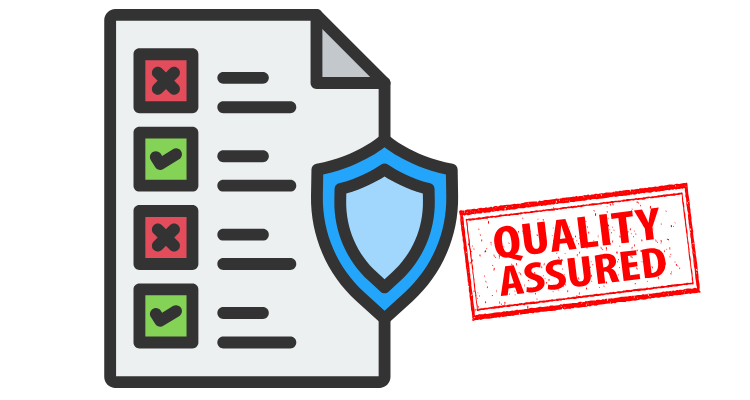Software no longer just supports business—it is the business. From mobile apps powering customer engagement to complex enterprise platforms running global supply chains, digital products sit at the core of value creation.
But here’s the reality: even the most innovative solution collapses if quality is ignored. A single crash, a security flaw, or sluggish performance can destroy trust and send customers running to competitors.
That’s why organizations of all sizes are investing in QA services. Not as a checkbox activity before release, but as a continuous, strategic function that defines the success or failure of digital initiatives.
QA isn’t just about finding bugs—it’s about ensuring reliability, protecting brand reputation, and delivering the kind of user experiences that keep customers coming back.
Let’s break down what professional QA truly covers, why it should be seen as an investment rather than an expense, and how specialized partners add unique value.
Table of Contents
ToggleWhat QA Services Cover

Quality assurance is broader than most realize. It’s not only about detecting errors before launch. It’s about building confidence at every stage of software development and deployment.
Modern QA services typically address three interlinked areas:
1. Functional testing

Functional testing is the backbone of QA. It answers the most fundamental question: does the software do what it’s supposed to do? Every button, form, workflow, and feature is validated against specifications. Without functional QA, applications are unreliable, riddled with unpredictable behavior, and unable to meet business needs.
Consider a banking app. If fund transfers occasionally fail or account balances show incorrect numbers, trust erodes immediately. Functional testing ensures that logic holds up under real-world conditions—whether that’s verifying calculations in financial systems, workflows in e-commerce checkouts, or integrations in supply chain platforms. It’s not just about correctness; it’s about predictability. Users should never feel like they’re gambling when they click.
Modern QA teams go beyond scripted test cases. They simulate real customer journeys, edge cases, and unusual scenarios that developers may not have anticipated. This prevents defects from surfacing after release, when fixing them becomes ten times more expensive.
2. Security and compliance

If functional testing is about “does it work?”, security testing is about “is it safe?”. In an era where data breaches dominate headlines, no business can afford weak security. Professional QA services incorporate penetration testing, vulnerability scanning, and code analysis to uncover risks before attackers do.
Compliance adds another dimension. Industries such as healthcare, finance, and government face strict regulations—HIPAA, PCI DSS, GDPR, to name just a few. QA teams ensure that software not only functions but also complies with these rules. Missing compliance is more than a technical problem—it’s a legal and financial nightmare. Fines, lawsuits, and reputational damage often dwarf the cost of preventive QA.
In short, security and compliance testing transform QA into a shield for both customers and businesses. By embedding these practices early, companies protect trust, reduce liability, and prove to stakeholders that they take responsibility seriously.
3. Performance optimization

Imagine launching a highly anticipated product, only to watch users abandon it because pages load slowly or transactions lag. Performance is invisible when it works—but painfully obvious when it doesn’t. That’s why performance testing is integral to QA.
Load testing, stress testing, and scalability analysis help businesses predict how systems behave under real-world conditions. Will your e-commerce site survive Black Friday traffic? Will your video streaming app handle a sudden spike during a live event? Will your logistics system remain responsive as partners add new data feeds?
Professional QA teams don’t just measure performance—they optimize it. They analyze bottlenecks, recommend architectural improvements, and validate fixes under simulated load. The result: applications that are fast, resilient, and ready for growth.
Why QA Is a Strategic Investment, Not a Cost
Too often, QA is treated as a line item in the budget. A necessary evil to get products out the door. But forward-looking organizations see it differently: QA is an investment in brand value, customer trust, and long-term profitability.
Think about the cost of failure. In 2023, a major airline’s IT outage stranded thousands of passengers, costing hundreds of millions in losses and irreparable brand damage. A simple bug in a retail checkout system can trigger cart abandonment at scale, draining revenue. Security flaws expose companies to ransomware attacks that halt operations for weeks.
By contrast, investing in QA upfront prevents these scenarios. It’s proactive risk management. Every dollar spent on QA saves multiples down the line by avoiding rework, downtime, and crisis management. More importantly, QA accelerates speed to market. When teams know quality is being validated continuously, they can release faster and with confidence.
From an investor’s perspective, companies with mature QA practices are more resilient. From a customer’s perspective, they’re more trustworthy. And from a business leader’s perspective, QA shifts from cost center to growth enabler.
The Role of a Mobile Application Testing Company
The rise of mobile-first business models makes specialized testing expertise essential. Mobile users are impatient, demanding, and unforgiving. A crash on Android, a bug in iOS gestures, or poor performance on older devices can result in immediate uninstalls and scathing reviews. This is where a dedicated mobile application testing company brings unique value.
These companies go beyond generic QA. They maintain device labs with hundreds of smartphones, tablets, and operating system versions to replicate real-world conditions. They understand the nuances of mobile UX: touch interactions, screen resolutions, battery consumption, connectivity shifts between Wi-Fi and 5G. They also test integrations with mobile ecosystems—push notifications, app store compliance, biometric authentication, and location-based services.
Outsourcing mobile testing ensures that apps don’t just function—they delight. Whether it’s a fintech startup launching a mobile wallet, a healthcare provider deploying a patient app, or a global retailer enhancing mobile commerce, specialized testers catch the issues that matter most to end-users.
Moreover, mobile application testing companies often bring automation frameworks tailored for mobile environments. This reduces regression testing time and ensures consistent quality across frequent updates. In a world where mobile apps define customer engagement, this expertise can make the difference between leading and lagging in the market.
Conclusion: Better software, stronger business outcomes
Software without quality is a liability. Software with quality is a competitive advantage. Professional QA services ensure that every line of code delivers value—whether through flawless functionality, airtight security, or high-performance scalability. They shift quality from an afterthought to a business strategy.
The evidence is clear: QA reduces costs by preventing expensive failures, drives innovation by enabling faster releases, and protects brand reputation by ensuring trust. Specialized mobile testing partners add further depth, ensuring mobile-first strategies succeed in an unforgiving marketplace.
Ultimately, QA is not about perfection—it’s about confidence. Confidence that your software will perform under pressure. Confidence that your customers will stay loyal. Confidence that your business can innovate without fear.
That confidence is what separates the companies who merely survive from those who lead. And it’s why professional QA services will continue to be one of the smartest investments any business can make.










